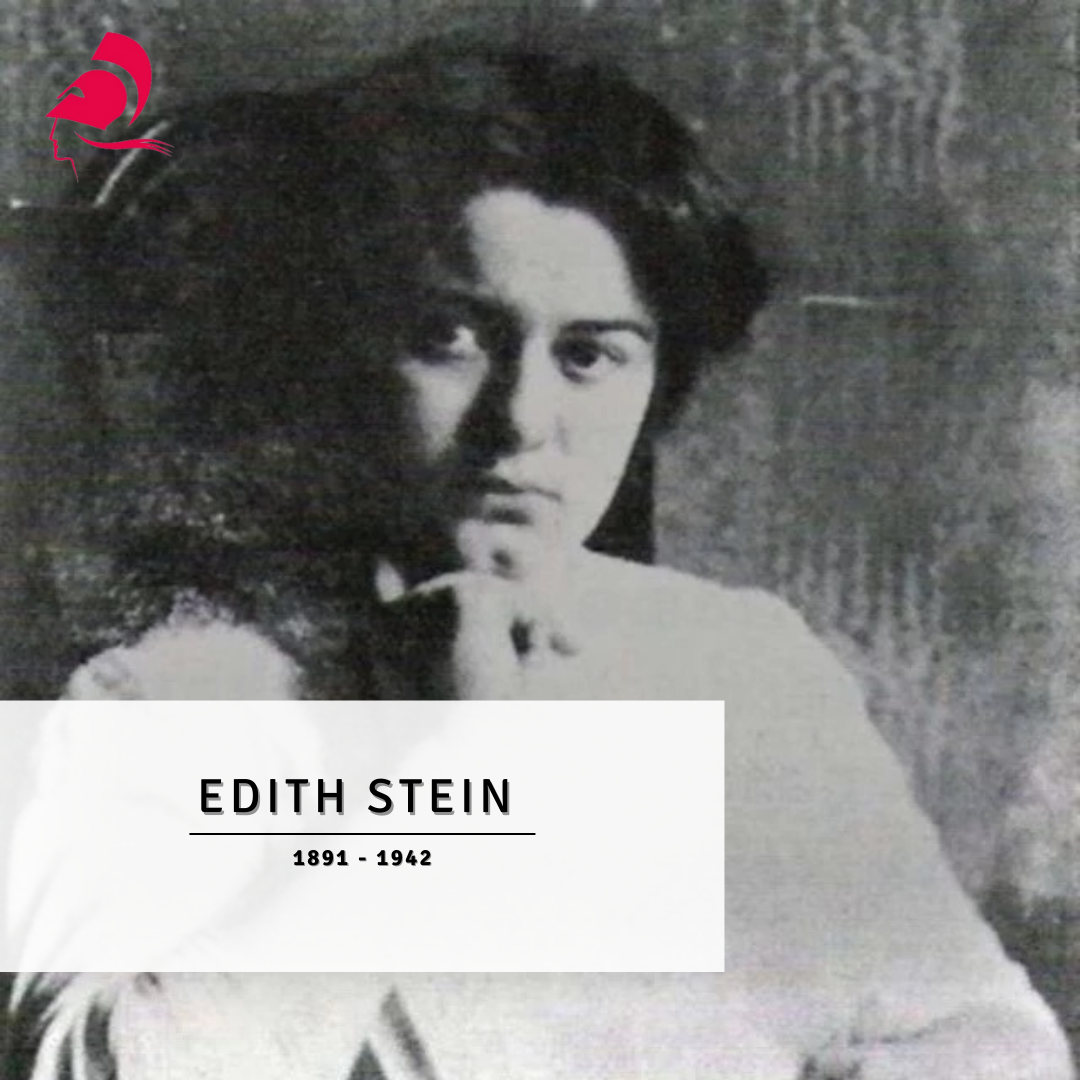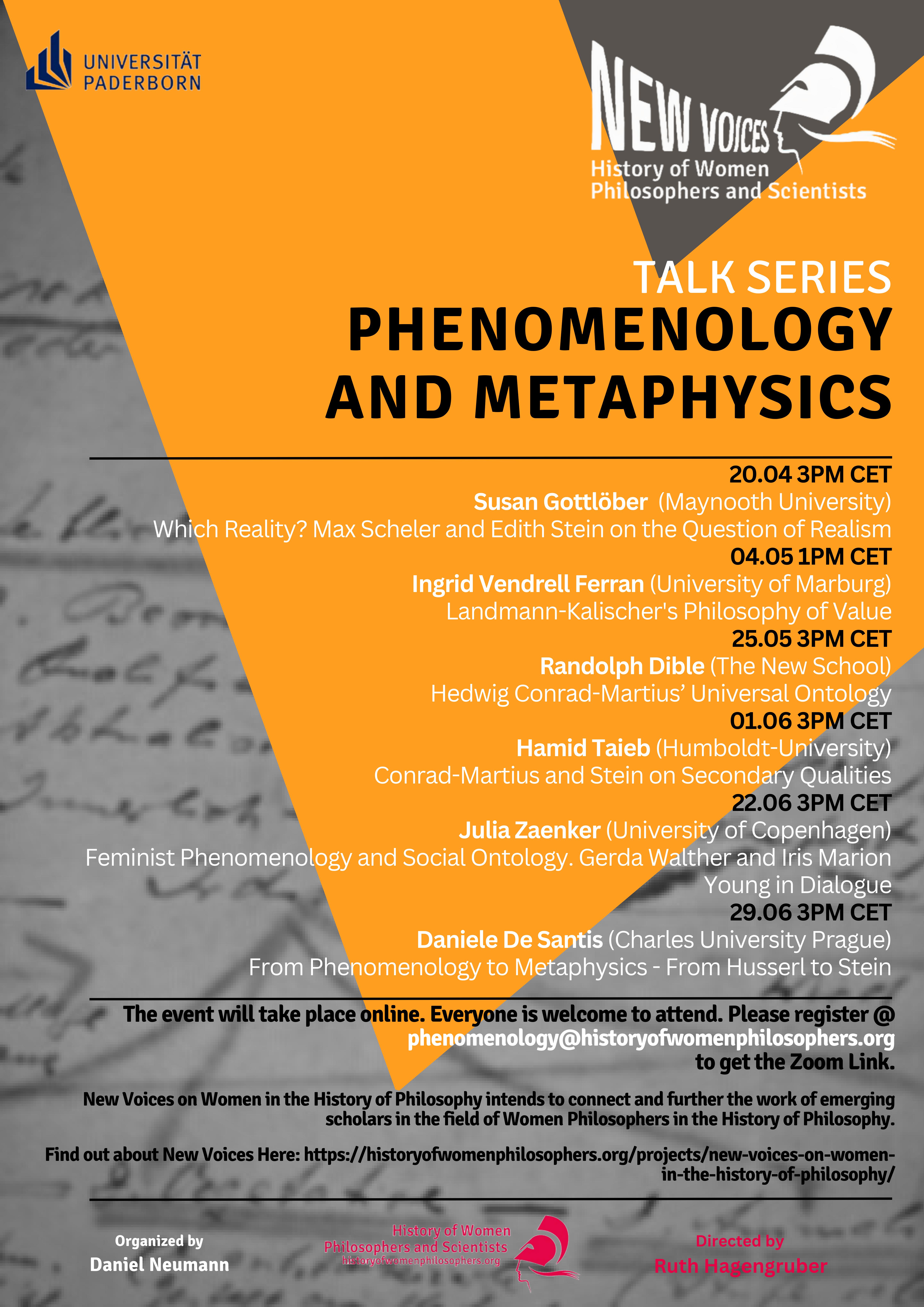A history in half.
We need the legacy of women philosophers.

“The principal importance lies in essential truths. What comes to things according to their essence, is, so to speak, the basic scaffolding of the world. And what happens to them accidentally is traced out as possibility in their essence. In this sense Husserl has drawn the factual world into treatment of essence. Thus there is an extensive common attitude between phenomenological and scholastic investigations–one is often surprised how far the agreement goes in the method of essence-analysis–and the opponents of phenomenology quite rightly discovered this, when they perceived and designated the method of essence-analysis, as it was used in the Logical Investigations, as the revival of Scholasticism.”
– Edith Stein: “Husserl’s Phenomenology and the Philosophy of St. Thomas Aquinas. Attempt at a Comparison”, in: Person in the World, (2010), 138 (translation by Mary Catherine Baseheart).
As Edith Stein rightly observed, the project of phenomenology was, from the beginning, shot through with metaphysical questions. One answer to this observation is to focus on epistemological issues, treating questions of being and reality in terms of transcendental access to multi-layered experience. Another approach, taken by Stein, as well as Hedwig Conrad-Martius and other early phenomenologists such as Adolf Reinach, is to directly address the intuition that as phenomenologist, one is faced with a transcendent reality that always exceeds the reflective grasp on the contents of consciousness. As an intuition of essences, phenomenology is interested in the dynamically changing essential structure that actualizes being. The essences in question are discovered, rather than epistemically constructed via methods such as eidetic variation. The intellectual heritage of thinkers like Edith Stein and Hedwig Conrad-Martius, who were among the first to take seriously the metaphysical questions in phenomenology, has recently become the focus of increased scholarly attention. See also the volumes of the Springer Series Women in the History of Philosophy and Sciences.

This year’s New Voices Summer Term Talk Series, organised by Daniel Neumann, Research Fellow at Paderborn University, is dedicated to Phenomenology and Metaphysics. The first talk will take place on Thursday, 20th of April, at 3 pm (CET).
Everyone is welcome to attend. To register and to receive the zoom invitation, please send an email to phenomenology@historyofwomenphilosophers.org
The program:
20th of April (3PM to 5PM): Susan Gottlöber: “Which Reality? Max Scheler and Edith Stein on the Question of Realism”
4th of May (1PM to 3PM): Íngrid Vendrell Ferran: “Landmann-Kalischer’s Philosophy of Value”
25th of May (3PM to 5PM): Randolph Dible: “Hedwig Conrad-Martius’ Universal Ontology”
1st of June (3PM to 5PM): Hamid Taieb: “Conrad-Martius and Stein on Secondary Qualities”
22nd of June (3PM to 5PM): Julia Zaenker: “Feminist Phenomenology and Social Ontology. Gerda Walther and Iris Marion Young in Dialogue”
29th of June (3PM to 5PM): Daniele De Santis “From Phenomenology to Metaphysics – From Husserl to Stein
You cannot copy content of this page








